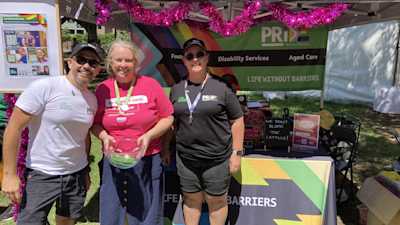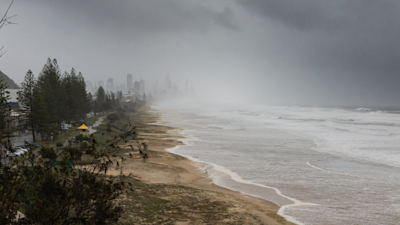Saturday, 8 March, is International Women’s Day and this year Life Without Barriers is thinking about the theme Accelerate Action.
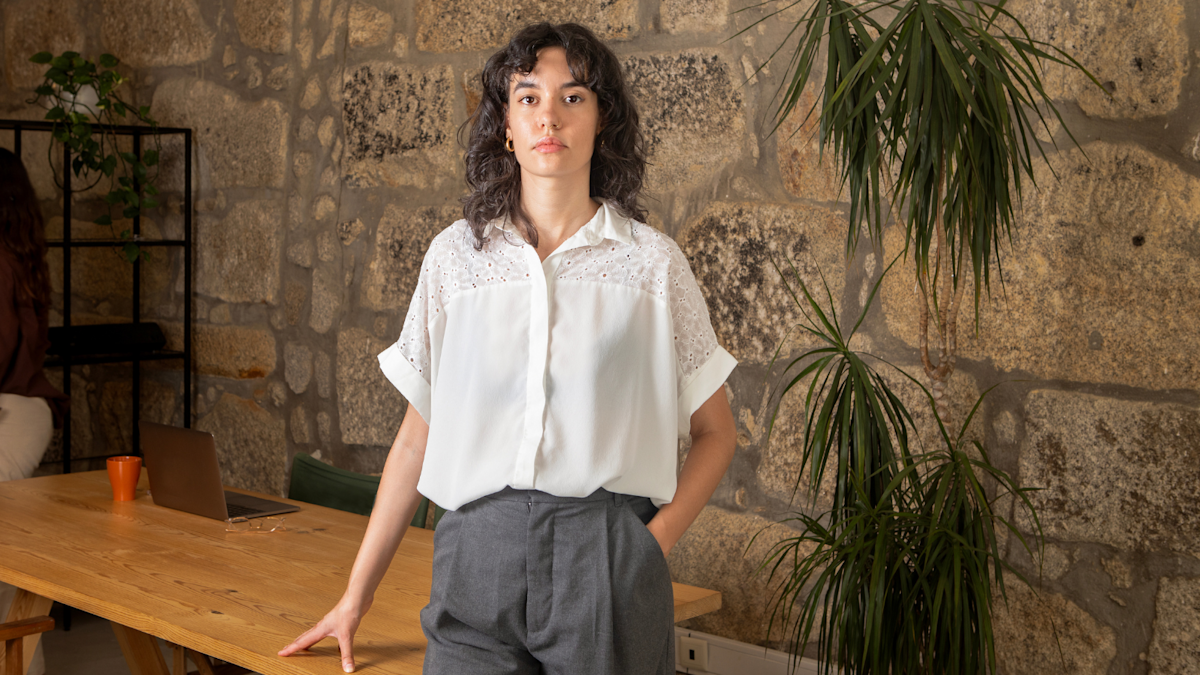
Image: A women wearing a white blouse and grey pants is standing in an office staring into the camera. She looks powerful and sure of herself.
‘Accelerate Action’ emphasises the need to act with greater urgency to address barriers and biases women and girls face in all aspects of their lives. In Australia, International Women’s Day (IWD) provides an opportunity to reflect on the progress made and to recognise the work still to be done to achieve full gender equality.
While International Women’s Day is a time to celebrate the achievements of women, it is also an opportunity to bring attention to the ongoing struggles faced by women and girls in Australia, including specific experiences of disadvantage and marginalisation. As a society we need to accept responsibility to drive change with commitment, care and dedication.
Ultimately, International Women’s Day is about creating a fairer world for everyone.
Addressing the barriers faced by girls and women requires not just systemic change but a shift in societal attitudes towards inclusivity and equality.
It is only through collective action, policy reform, and community support that we can ensure all women, regardless of their background or circumstance, can enjoy the freedoms, opportunities, and safety they deserve.
Women with Disabilities
Women with disabilities may face a unique set of challenges, compounded by the intersectionality of their gender and disability. Women and girls with disability are more at risk of experiencing violence, abuse, and exploitation.
Societal barriers, such as inaccessible public spaces, limited employment opportunities, and the lack of support services, can further isolate women and girls with disability from accessing the same opportunities available to non-disabled women.
We believe we must all advocate for better accessibility, inclusive healthcare, and policies that ensure the rights of women with disabilities to live with dignity, independence, and full participation in society.

Image: Debbie Heron wearing a pink blazer and maroon shirt, standing next to Claire Robbs, wearing a cream blazer and black shirt, smiling at the camera.
Aboriginal and Torres Strait Islander Women
Aboriginal and Torres Strait Islander women face some of the most significant disparities in Australia. They experience higher rates of violence, poverty, and incarceration compared to non-Indigenous women.
Cultural and systemic discrimination often prevents First Nations women from accessing adequate healthcare, education, and justice. The overrepresentation of Aboriginal and Torres Strait Islander women in domestic violence statistics is a stark reminder of the ongoing impacts of colonisation, including the loss of cultural practices, the disruption of family structures, and the trauma of dispossession and most critically - racial discrimination.
Read about The Impact of the Activity Test on Aboriginal Families here.
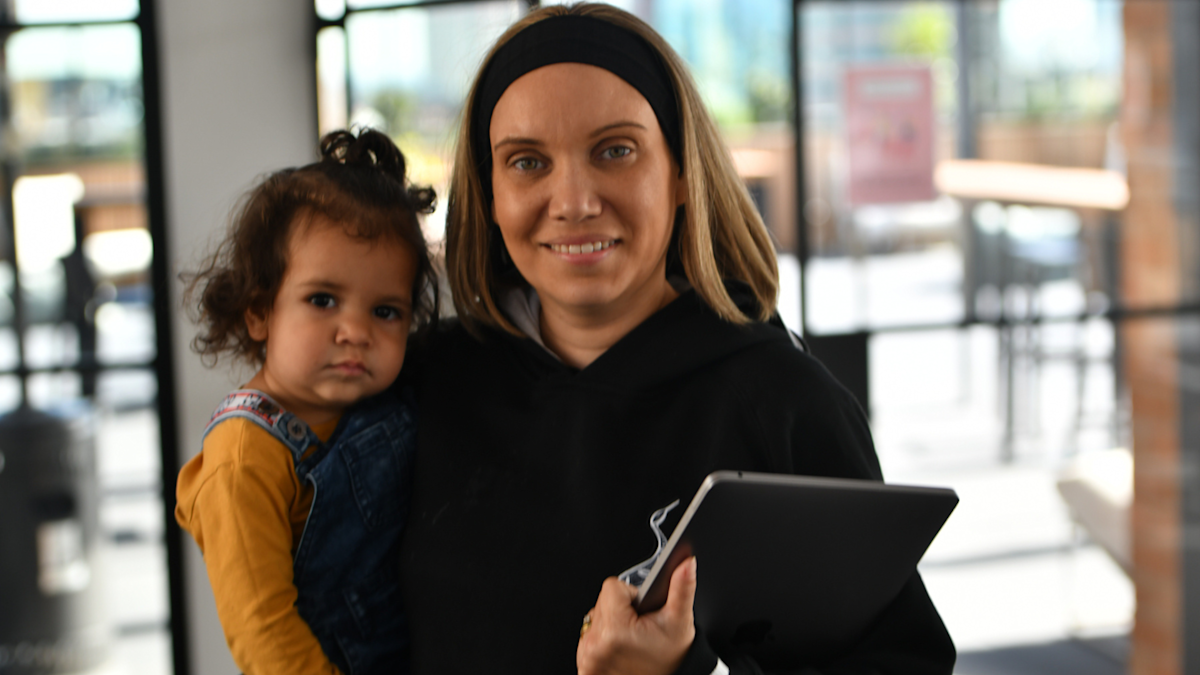
Image: A women with short blonde hair holds a laptop in one arm and her young daughter in the other.
Women in Forced Marriages
Forced marriage is a violation of human rights and remains a reality for many girls and women, particularly women and girls from migrant and refugee backgrounds. In Australia, while the law has been amended to criminalise forced marriage, many women still face pressures and family expectations that can lead to such practices.
Greater cultural awareness, and comprehensive support systems for women at risk of forced marriage are crucial to breaking the cycle of abuse and ensuring that all women can choose their partners freely, without coercion.
Read about the difference between arranged marriages and forced marriage here.
Asylum Seekers and Refugee Women
Women seeking asylum and or refugee status in Australia without support can endure the trauma of displacement, conflict, and violence in their home countries, and they often arrive in Australia without the support networks needed to build a new life.
It is incumbent on our whole society to understand and protect the safety and rights of girls and women, ensuring that they have access to trauma-informed support services, legal assistance, and pathways to permanent settlement.
Women Experiencing Domestic and Family Violence
Domestic and family violence remains one of the most pressing issues facing women in Australia today. Every week, at least one woman is killed by a current or former intimate partner, and one in three women will experience physical or sexual violence in their lifetime.
Women who are victims of domestic violence often experience trauma that affects not only their physical safety but also their mental health, financial stability, and long-term well-being. As a society, it’s crucial that we create better support systems to assist women fleeing violent relationships, from safe housing options to legal protection and mental health services.
Women like Grace Tame, the 2021 Australian of the Year and survivor of sexual assault, have led the charge in elevating the voice of women and girls and demanding justice for survivors.
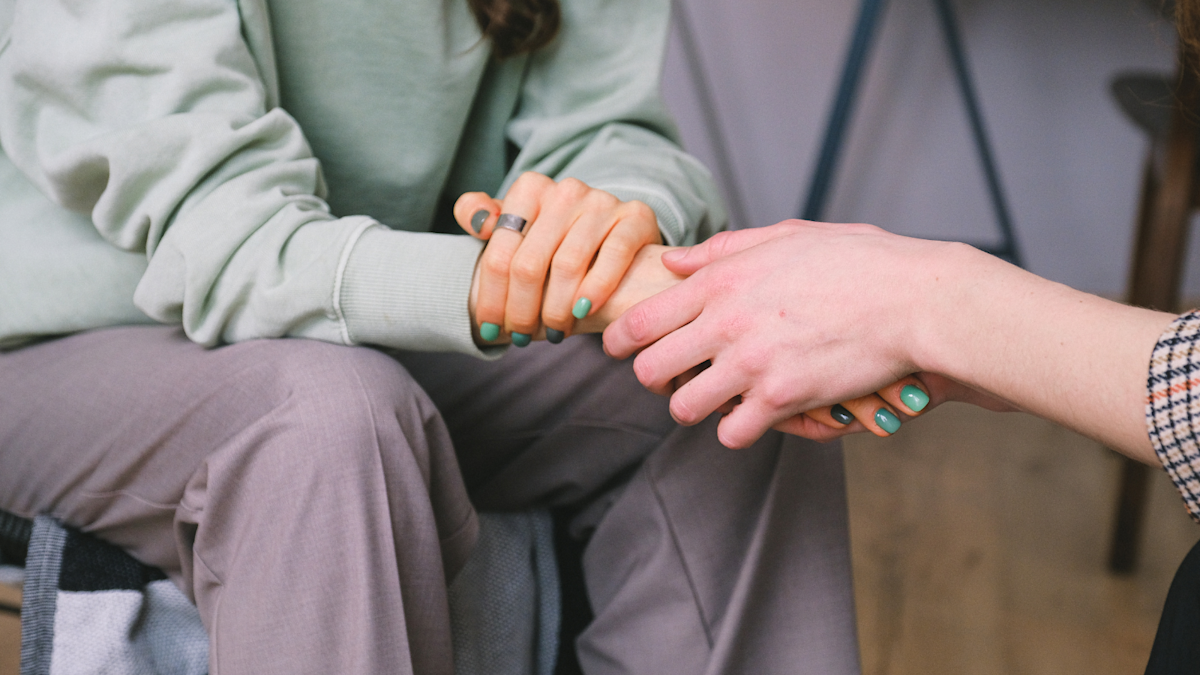
Image: Close up photo of two women holding hands. One person is comforting the other.
So What Can We Do?
Supporting women’s rights and gender equality: we must continue to advocate for policies and practices that promote gender equality. This includes ensuring equal pay for equal work, combatting workplace discrimination, and increasing support for women in leadership roles.
Tackling violence against women: Despite progress, one in three Australian women will experience physical or sexual violence in their lifetime. This statistic is alarming and underscores the importance of continued efforts to tackle domestic violence, improve support systems for survivors, and change societal attitudes that perpetuate violence.
Empowering young women and girls: Young women and girls are the future of our nation, and they need our support now. Education, mentorship, and safe spaces are essential in helping them achieve their full potential.
Championing women in leadership: Women are underrepresented in leadership roles across sectors — from politics to business to science. Encouraging women to take leadership roles, providing mentorship, and creating pathways for their advancement is key to creating a more equal and inclusive society.
Looking to the Future
As we look ahead to the future, we are reminded of the incredible potential of women and girls in Australia. With the right support, opportunities, and recognition, there is no limit to what they can achieve. International Women’s Day is not just about celebrating what has been accomplished; it’s about inspiring change, pushing boundaries, and creating a society where women are truly equal in every sense of the word.
International Women’s Day is also a time to celebrate the incredible women who continue to shape Australia in meaningful ways. From people working on the frontlines of health and social services to the innovators and change-makers in business, politics, and the arts, Australian women are breaking barriers and creating opportunities for the generations to come.
These women inspire us to imagine a world where all women have the opportunity to thrive, free from discrimination and violence, and where their voices are not only heard but amplified.
